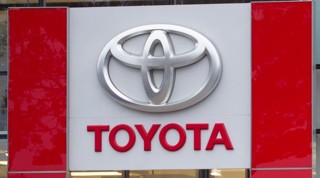 Glyn Hopkin's employee ownership trust sale marks a shift in how groups are looking at succession planning, argues Alison Ashley, RSM UK head of motor retail.
Glyn Hopkin's employee ownership trust sale marks a shift in how groups are looking at succession planning, argues Alison Ashley, RSM UK head of motor retail.
The group, which has a £550m turnover, has 25 sites and employs more than 800 people, making it the largest EOT transaction in the franchised motor retail sector.
When business owners are planning for a future exit, there are various options to consider.
 Glyn Hopkin's employee ownership trust sale marks a shift in how groups are looking at succession planning, argues Alison Ashley, RSM UK head of motor retail.
Glyn Hopkin's employee ownership trust sale marks a shift in how groups are looking at succession planning, argues Alison Ashley, RSM UK head of motor retail.
The group, which has a £550m turnover, has 25 sites and employs more than 800 people, making it the largest EOT transaction in the franchised motor retail sector.
When business owners are planning for a future exit, there are various options to consider.
These include the traditional trade sale route, or options involving those currently in the business such as a management buyout (MBO) or a sale to an employee ownership trust (EOT).
With increased uncertainty around capital gains tax (CGT) rates following the general election, an EOT is a tax-efficient way of selling shares in a business.
There are also significant advantages, as provided certain conditions are met, the capital gain arising is tax free.
On a practical level, thought needs to be given to how the purchase will be funded and the timeframe.
Generally, the vendor will require an ‘upfront’ payment of consideration, which may be debt-funded, with the balance of consideration being deferred and paid out of future profits of the business.
This route will only suit profitable businesses which can secure and afford the debt or can self-fund entirely.
Under the right circumstsances, the decision to move forward with an EOT strategy will often also be driven by wider factors such as ensuring the continuity of the business, offering opportunity for employees and management, and preserving the culture of the organisation they have created.
While the tax benefits are tempting with the EOT route, it is important to make sure that the business objectives are aligned with long-term employee ownership, as unwinding the structure can be costly from a tax perspective.
For franchised motor retailers, they will also need to consider the views of their manufacturing partners.
Login to continue reading
Or register with AM-online to keep up to date with the latest UK automotive retail industry news and insight.

















Login to comment
Comments
No comments have been made yet.